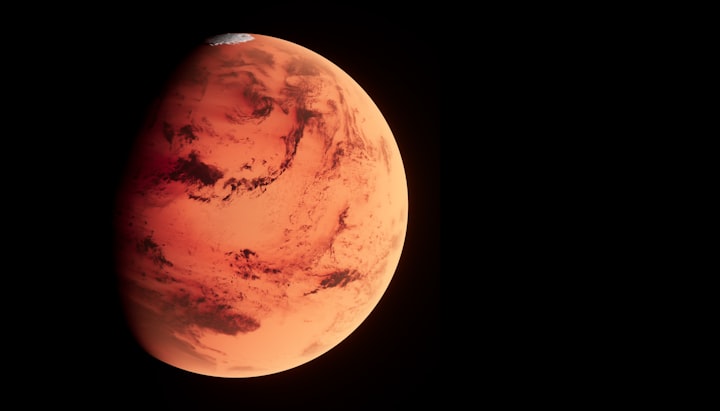
Scientists have warned for decades of the deadly impacts of human-caused climate change on Earth. And according to a new study, Mars may offer an example of the damage that can occur to life itself because of the greenhouse gas effect.
The environment of Mars' early days, some 3.7 to 4.1 billion years ago, was likely favorable to allowing life to thrive — specifically, simple microbial organisms that ate up hydrogen and carbon dioxide and released methane. These kinds of microbes are common on Earth today, living in extreme environments such as hydrothermal vents along the ocean floor.
But that method of consumption is also what may have led to the life forms' demise, scientists found, because they produced so much methane waste that it could have triggered a "global cooling event." In a study published in the journal Nature Astronomy on Monday, scientists said that such a cooling event would have ended potential warm conditions and compromised the ability for life to survive on Mars' surface.
How did they come to such a discovery? University of Arizona researchers created hypothetical scenarios of Martian ecosystems using models of Mars' crust, atmosphere and climate, as well as an ecological model of methane-producing microbes.
What they found is that early Mars was warmer and wetter than the cold and dry conditions it's known for today, making hydrogen initially abundant in the Martian atmosphere. Such conditions would have provided an "ample supply" of food for the microbes about 4 billion years ago, according to a press release from the University of Arizona.
"We think Mars may have been a little cooler than Earth at the time, but not nearly as cold as it is now, with average temperatures hovering most likely above the freezing point of water," university professor and study author Regis Ferrière said. "While current Mars has been described as an ice cube covered in dust, we imagine early Mars as a rocky planet with a porous crust, soaked in liquid water that likely formed lakes and rivers, perhaps even seas or oceans."
His team made a model of the Martian crust, complete with rock and salty water and atmospheric gases diffusing into the ground. In such an environment, microbes could have thrived in the "upper few hundreds of meters" of Mars' crust, researchers said.
But that thriving population could not last, scientists found, because of all the methane the microbes produced. Within "few tens or hundreds of thousands of years," Mars' atmosphere would have been "completely changed" as the red planet experienced global cooling, Boris Sauterey, the lead author of the study, said.
The cooling was brought on by a greenhouse gas effect. Hydrogen and carbon dioxide worked together to maintain the planet's warmth, but because methane was essentially taking hydrogen's place, heat-trapping became more difficult, allowing the planet to cool.
"The problem these microbes would have then faced is that Mars' atmosphere basically disappeared, completely thinned, so their energy source would have vanished and they would have had to find an alternate source of energy," Sauterey said. "In addition to that, the temperature would have dropped significantly, and they would have had to go much deeper into the crust. For the moment, it is very difficult to say how long Mars would have remained habitable."
The scenario on Earth is not exactly the same, of course, although a greenhouse effect is seen here too.
Unlike Mars, Earth's atmosphere is mostly made of nitrogen, with a smaller fraction made of oxygen. These molecules interact differently than the ones on Mars' atmosphere, which is why when methane is released on Earth, it works to trap heat on the planet. The greenhouse gas effect on Earth is caused not by microbes but by people burning fossil fuels.
About the Creator
k eleanor
Writer focused on film, media, fandom, music, comic, and all things geeky. Here you'll find Breakdowns, Analysis, Easter Eggs of Movies and series. Every universe comes together at this place. So just sit back, relax and enjoy the ride.






Comments
There are no comments for this story
Be the first to respond and start the conversation.